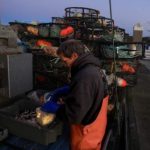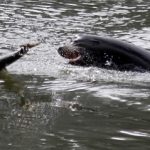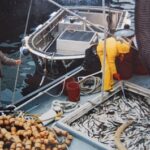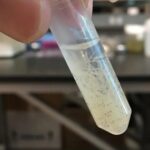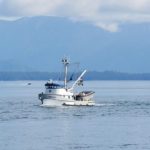Tag Archives: Snake River
Opinion: Breach the Snake River dams? Only if you want more carbon and more expensive power
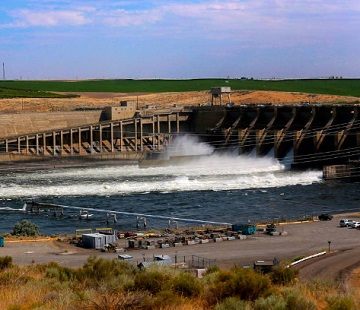 Recently our local papers have been publishing opinion pieces suggesting the possibility or necessity of removing the four lower Snake River dams to protect Idaho salmon runs. And earlier this year the Idaho Press published an article reporting that the Biden administration has released two reports stating that removal of the four dams on the lower Snake River “may be needed to restore salmon runs to sustainable levels.” There are other much cheaper alternatives that may be just as effective in preserving the salmon runs — maybe more. One would be to permanently remove the sea lions that congregate at the base of Bonneville Dam, the first dam on the Columbia River. Those sea lions decimate thousands of migrating salmon that gather around the base of the dam as they try to find the fish ladder over the dam. >click to read< 11:27
Recently our local papers have been publishing opinion pieces suggesting the possibility or necessity of removing the four lower Snake River dams to protect Idaho salmon runs. And earlier this year the Idaho Press published an article reporting that the Biden administration has released two reports stating that removal of the four dams on the lower Snake River “may be needed to restore salmon runs to sustainable levels.” There are other much cheaper alternatives that may be just as effective in preserving the salmon runs — maybe more. One would be to permanently remove the sea lions that congregate at the base of Bonneville Dam, the first dam on the Columbia River. Those sea lions decimate thousands of migrating salmon that gather around the base of the dam as they try to find the fish ladder over the dam. >click to read< 11:27
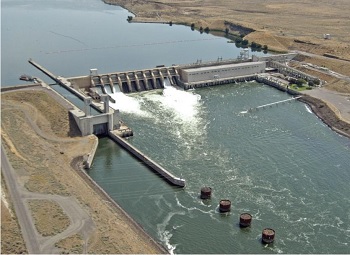
Report: Removing Lower Snake River dams – Bill filed to save Snake River dams.
If four Lower Snake River dams were breached to support salmon recovery, the energy, irrigation, recreation and other benefits they provide to the Pacific Northwest could be replaced for $10.3 billion to $27.2 billion, according to a draft report released Thursday by U.S. Sen. Patty Murray, D-Wash., and Washington Gov. Jay Inslee. The report does not take a position on whether the hydropower dams should be removed, but finds that breaching offers the best chance to recover salmon runs in the Columbia and Lower Snake rivers,,, >click to read<
Republican representatives, led by Rep. Dan Newhouse, R-Wash., introduced federal legislation on Thursday to protect the four lower Snake River dams from being breached. The bill was introduced just hours before a draft study commissioned by Sen. Patty Murray, D-Wash., and fellow Gov. Jay Inslee, a Democrat, was released. The draft study concluded that it would be costly, perhaps requiring more than $27 billion, but the dams could be breached and their benefits replaced. It would be the action most likely to restore endangered salmon runs and benefit tribes, the draft study said. >click to read< 10:52
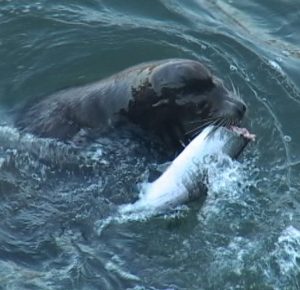
Salmon runs: Remove sea lions
Breaching the Snake River dams will not guarantee an improved salmon run. A better suggestion might be to remove the sea lions from the Columbia River and severely restrict fishing as our Canadian neighbors are doing for their Fraser River run. It is difficult for more salmon to get upstream when they are being overfished, and each sea lion consumes 15 to 40 pounds of fish per day. By John Crawford >click to read< 09:21
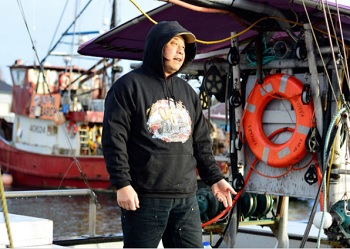
“What if the dams came out?” – Snake River dams proposal draws accolades, criticism – It will take an Act of Congress
It’s a “pinch me, this is real” moment, said Amy Grondin. So when she heard Republican U.S. Rep. Mike Simpson of Idaho announce a proposal to breach all four Lower Snake River dams, infamous for blocking salmon passage, she saw a ray of hope. Titled the Columbia Basin Fund, the plan calls for replacing the dams’ hydroelectric energy production with other sources. The fund also would ensure that flood control, farm irrigation and grain transportation are addressed, all to the tune of $33 billion. >click to read< 09:24

A New Generation! The Army Corps of Engineers have designed a hydroelectric turbine that’s safer for fish, increase energy efficiency by 4%
They’ve recently installed a new design that’s improving energy efficiency and improving fish survival along the Snake River, with plans to upgrade more turbines over the next several years. The Army Corps installed the first of two designs at Ice Harbor Dam, just outside the Tri-Cities in southeastern Washington. A second blade design should be finished in 2021. “It really is a new generation of turbine design for our hydropower system,” said the Corps’ Martin Ahmann.,, This new turbine has been shown to increase juvenile fish survival rate to more than 98%. >click to read< 10:50
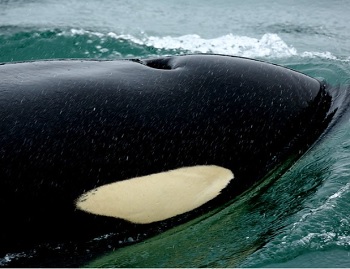
Suit targets Alaska salmon management to protect southern killer whales
The Wild Fish Conservancy filed notice on January 9, stating its intentions to sue the National Marine Fisheries Service for violating the Endangered Species Act, and jeopardizing the existence of Southern Resident Killer Whales. The Conservancy argues that an important food supply of the whales, endangered stocks of chinook salmon originating in Puget Sound, the lower Columbia River, the Willamette River, and Snake River is being depleted by the commercial troll and sport harvest in Southeast Alaska. >click to read< 20:51
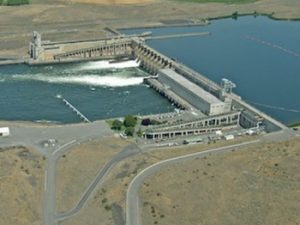
Gov. Inslee Report Weighs Future of Snake River
It’s designed to increase understanding on both sides of the issue. Amy Grondin, a commercial fisher in Port Townsend, was interviewed for the report and says the salmon industry continues to be hurt because of the dams’ effect on fish migration. “Over the last 50 years, the commercial fishing fleet has been asked to compromise and to not fish and cut back their numbers, and annually we see what we’re allowed to catch become less and less,” says Grondin. “We’re really at a tipping point for the fish and the fleets.” Audio, >click to read/listen<11:00
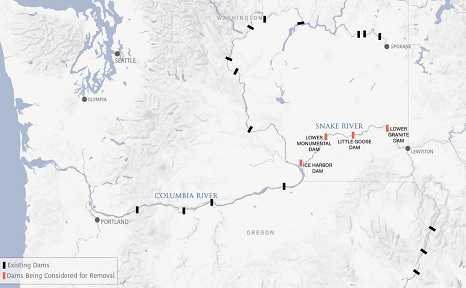
On the Northwest’s Snake River, the Case for Dam Removal Grows
The hydropower dams have been controversial since before their completion, between 1962 and 1975, because of their disastrous impact on salmon and the other 137 species that are part of the salmon food chain. Most of the Columbia Basin’s 250-plus dams have played roles in the salmon’s decline, but the four lower Snake River dams are prime targets for removal because their economic value has diminished and their absence would inordinately benefit salmon. >click to read< 17:22

Pawning off one farmer as representing all is a cheap trick in the dam-removal campaign
Advocates for tearing down the Snake River dams made a scheming move last week in Olympia, but they didn’t fool Eastern Washington lawmakers. If anything, their failed strategy strengthened the resolve of many of our region’s legislators, who were frustrated by the misrepresentation. Here is the story: A Seattle-based marketing firm sent out news releases this month saying that an “unlikely alliance” of fisherman, farmers and small business owners was gathering April 10 at the state capitol to support creating a forum focused on the dams. >click to read<13:07
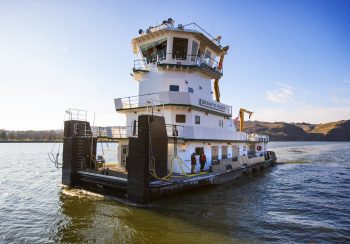
Breaching Snake River dams could save salmon and orcas, but destroy livelihoods
THE GROWING Snake River Dam people’s self-defense movement has no written public-relations manual containing a list of cardinal sins. If it did, a new entry at the top might suggest this: DO NOT DISPARAGE THE ORCAS. Not that anyone in Washington’s southeast corner — wheat country, USA — would do that, anyway. Most of them will tell you that they, too, love chinook salmon, cherish orcas and see both as iconic Northwest species.,,, When a state task force on orca survival called for a study widely seen as a means to justify dam breaching (ultimately a federal, not a state, decision), people from the Tri-Cities to Clarkston felt the metaphorical crosshairs trained once again on their backs. While not new, it is a newly uncomfortable position — one that has prompted the people of the lower Snake to issue a simple short-term request: Whoa, pardners. Whoa. Just whoa. 23 photo’s >click to read<21:16
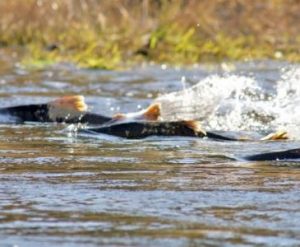
Northwest Dams to Spill More Water to Help Salmon & Orca
Dam operators will send more water spilling over the eight dams along the Snake and Columbia rivers in an effort to help young salmon survive the notoriously deadly trip to the Pacific Ocean. The spill management plan for 2019 and 2020 is a win for salmon advocates in a 17-year legal battle where federal judges have repeatedly told the government it’s not doing enough to prevent the extinction of salmon in the rivers of the Northwest. It also brings that litigation into alignment with the work of a Washington state task force determined to prevent the extinction of Southern resident killer whales whose survival depends on endangered Chinook salmon. >click to read<12:03
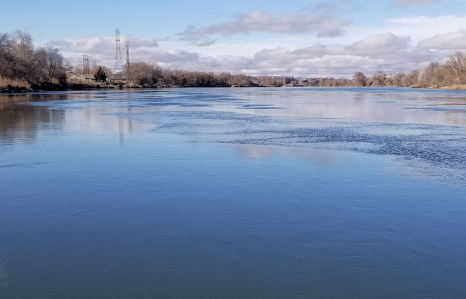
Wastewater worries
On Tuesday, the Ontario City Council voted to have City Manager Adam Brown send a returning letter to Oregon’s Department of Environmental Quality. The letter will outline major concerns with a draft sent to the city by the department for review and comment of National Pollutant Discharge Elimination System permit. The permit would allow the city to discharge wastewater into the Snake River, with new limits and pollutant monitoring six months out of the year.,, Among top concerns are the exorbitant costs to upgrade existing wastewater treatment facilities,,, Arsenic, along with copper and mercury are bioaccumulative toxins that aggregate in fish tissue,,, >click to read< 18:50
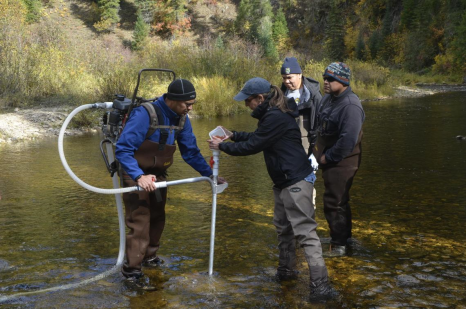
Nez Perce tribe hopes to spark return of chinook with artificial beds
The Nez Perce tribe is taking advantage of overproduction at the Clearwater Hatchery to seed some local streams with spring chinook redds – spawning beds or nests. Members of the tribe’s fisheries division have been busy placing 850,000 fertilized eggs into artificial nests in the beds of Newsome and Lolo creeks, where they have also done extensive restoration work. The process involves using special equipment to recreate the nests that female salmon laboriously create with their bodies and then injecting the eggs into the gravely cavities. It’s not the most efficient way to boost salmon runs, but tribal fisheries officials say it’s better than having the excess eggs go to waste. click here to read the story 16:41
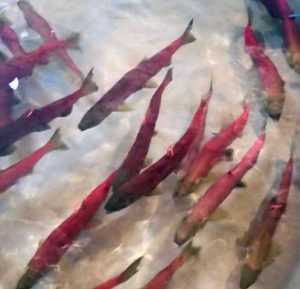
Experts: Idaho hatchery built to save salmon is killing them
A relatively new $13.5 million hatchery intended to save Snake River sockeye salmon from extinction is instead killing thousands of fish before they ever get to the ocean, and fisheries biologists in Idaho think they know why. The Department of Fish and Game in information released this week says water chemistry at the Springfield Hatchery in eastern Idaho is so different from that in the central region that the young fish can’t adjust when released into the wild. Idaho Rivers United, an environmental group, blasted the report as more reason for removing four dams on the lower Snake River that impede salmon click here to read the story 10:53
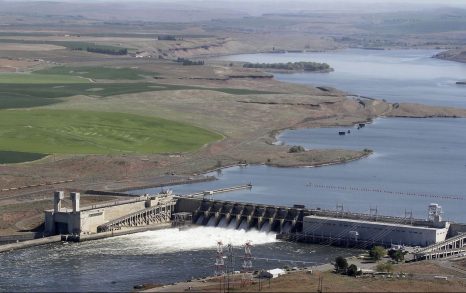
Trump administration urged to avoid salmon protection rules
A group that represents farmers is calling the costs of saving imperiled salmon in the largest river system in the Pacific Northwest unsustainable and is turning to the Trump administration to sidestep endangered species laws. The Columbia-Snake River Irrigators Association wants the government to convene a Cabinet-level committee with the power to allow exemptions to the Endangered Species Act. The irrigators association is frustrated with court rulings it says favor fish over people, claiming the committee could end years of legal challenges over U.S. dams on the Columbia and Snake rivers and bring stability for irrigators, power generators and other businesses that rely on the water. click here to read the story 18:12


































